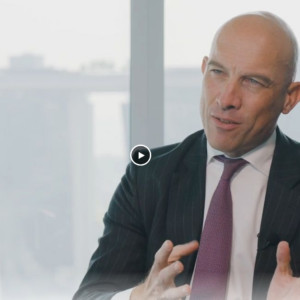Fine art proving an attractive investment for high net worth clients

Investing in fine art continues to offer investors significant long-term return potential, alongside the opportunity to manage tax liabilities.
The Frieze Art Fair saw its 20th high profile event in London in early October. This gathering of artists, collectors, wealth managers and their art-obsessed clients, in a small tent city in the corner of Regent’s Park, plays a key role in connecting investors with the colourful, often eccentric contemporary art world. Frieze London and Masters typically sees 60,000 visitors perusing works of art from more than 150 galleries.
Key themes at the international gathering in 2023 included war, the environment and the history of colonialism. But as much as highlighting the latest emerging artists and associated trends, the event also put the attractions of holding collectible assets within an investment portfolio into sharper focus.
The Knight Frank Luxury Investment Index, which tracks a weighted basket of 10 collectibles, rose by 7 per cent in the 12 months to the end of June 2023, largely driven by the performance of art investments which delivered 12-month growth of 30 per cent.
Some of these stellar returns are explained by a return to normality following the Covid-19 pandemic. But more generally, these collectible assets continue to offer investors attractive long-term return potential, alongside opportunity to manage tax liabilities.
The generation game
Other factors are also likely to boost the notion of art as an investment, rather than just a collectible for enthusiasts. The most important is the massive shift in intergenerational wealth. Over the next 20 to 30 years, £5.5tn ($6.7tn) in the UK alone will pass down from the baby boomer generation to millennials, according to research from the Centre for Economics and Business Research. This will likely create an impact on the role art plays in the future of investment portfolios. Although, as with any investable assets, the value of investments can go down as well as up, so there is always risk.
The likelihood is that art’s positive performance, along with its alignment with millennials’ propensity to invest in assets that match their values or interests, means it may retain its place in portfolios. But the way in which the next generation invests is set to take a more modern, digital approach.
Tokenisation could offer some notable benefits to both buyer and seller, giving artists provable scarcity and opening up avenues for sales and expansion into new audience segments. For investors, tokenisation offers a clear chain of ownership, providing protection against forgery and allowing more complex transactions related to artwork.
We have already started to see fragments of the trend toward tokenisation over the last couple of years. We expect this may well continue, as the infrastructure around digital art evolves to create innovative platforms and marketplaces that connect artists and investors. This could potentially make it easier for both parties to navigate the digital art space.
Tax benefits
Art investment could also help the next generation manage the potentially corrosive impact of inheritance tax (IHT), although this is dependent on individual circumstances and jurisdiction, and it is advisable to take advice at the outset.
There is widespread speculation about IHT abolition in the upcoming UK autumn statement. Under current rules, for those with art collections to pass on, and those set to receive them, the tax applies to art and collectables just as it does to other valuables in the estate.
This means that, if a UK estate exceeds the nil-rate band – £325,000, with an additional £175,000 available if the home is passed to a direct descendent – the excess is liable to be taxed at 40 per cent. However, for owners of high-value artworks specifically, there are a number of schemes available that could serve to reduce, eliminate, or defer a tax bill.
These include the Cultural Gifts Scheme which enables UK taxpayers to donate important works of art and other heritage objects to be held for the benefit of the public or the nation. In return, donors receive a tax reduction based on a set percentage of the value of the item they donate. The Acceptance in Lieu Scheme allows those with an IHT bill to pay the tax by transferring important cultural, scientific, or historic objects and archives to the nation. The Conditional Exemption Tax Incentive Scheme allows opportunity to defer payment of IHT or Capital Gains Tax when an item of ‘pre-eminent importance’ is passed to a new owner, either by gift or by inheritance.
These schemes can save families on a potentially hefty IHT bill. And in some circumstances, they enable the next generation to continue enjoying the works of art, subject to conditions.
The artwork at this year’s Frieze Festival was billed as the most international and exciting yet. As the market moves in a digital direction, we can expect to see visitors attracted not only by the artwork, but the ongoing investment opportunities which could be available to them.
Simon Bashorun is co-head of private client advice at Investec Wealth & Investment (UK)





